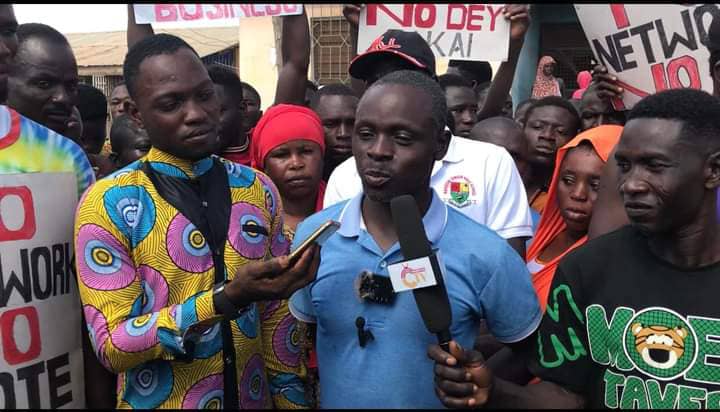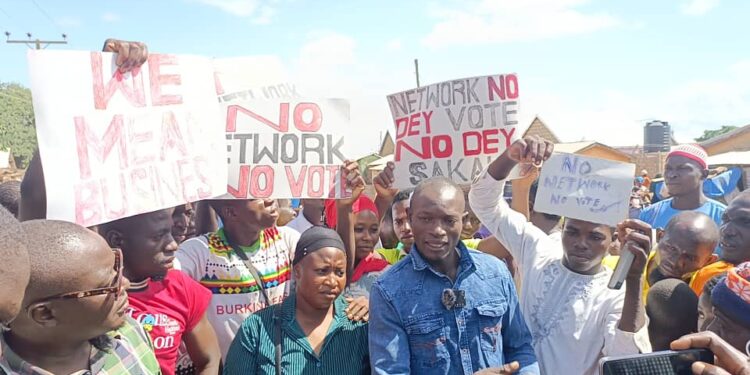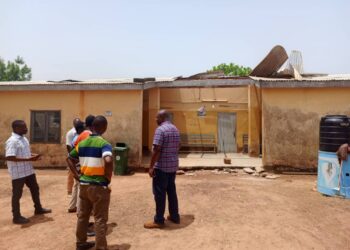Residents of Sakai in the Sissala East Municipality of the Upper West Region are grappling with severe mobile network issues, which significantly impact their daily lives. The lack of a telecommunication network hinders the use of mobile phones and other essential devices which affect the entire community.
Nurses, teachers, and pregnant women in Sakai face particular hardships due to the network deficiency. Without reliable communication channels, healthcare and education services suffer, and residents cannot make emergency calls or conduct business over the phone.
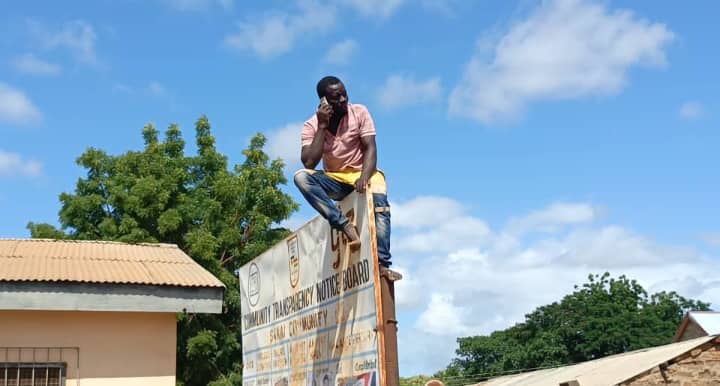
Despite Vice President Dr. Mahamudu Bawumia’s advocacy for a digital shift to spur national development, Sakai remains disconnected. Dr. Bawumia has emphasized the necessity of digitalization for progress, but this policy requires universal telecommunication access, which Sakai lacks.
The youth of Sakai, frustrated by the neglect of the government held a press conference on Friday, August 1, 2024. They expressed their disappointment and warned they would boycott the 2024 general elections if their network issues remain unresolved. “No Network, No Vote” is their rallying cry which underscores their demand for inclusion in the nation’s digital future.
The enthusiasm of the youth was overwhelming during the press conference as they held placards reading “No Network, No Vote” and “We Mean Business.” They chanted these slogans with passion to make their demands clear.
This declaration by the youth of Sakai highlights the general issue of connectivity in rural areas which calls for urgent government action to bridge this digital divide.
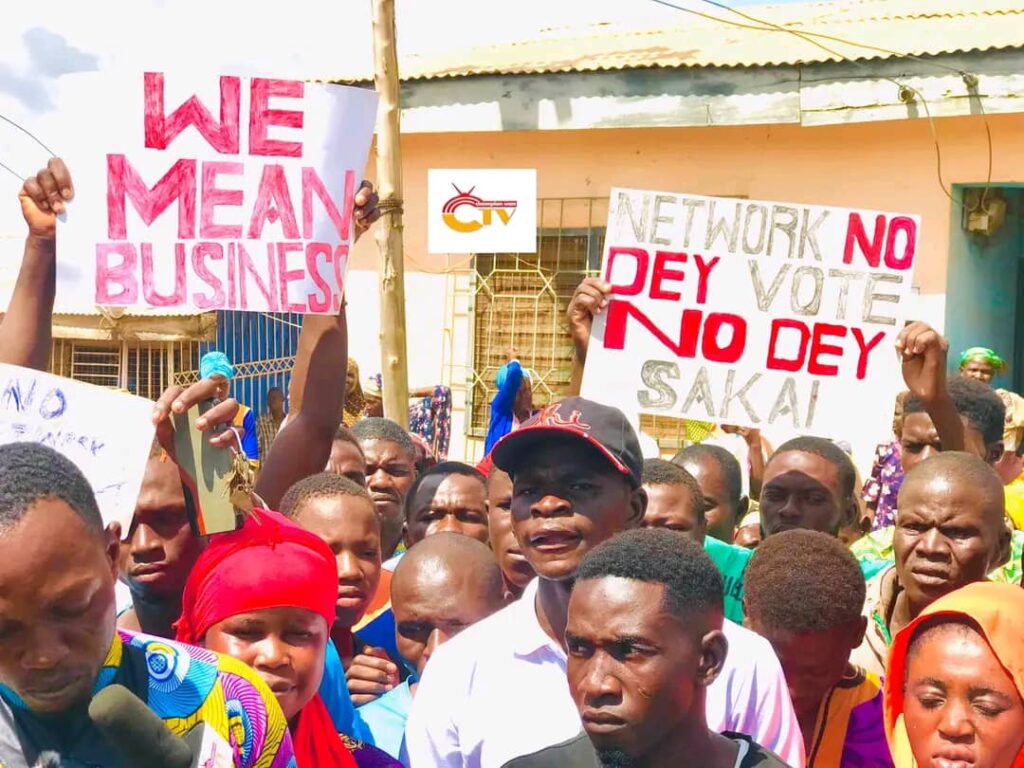
Addressing the press conference, Saani Kantongboku, the youth president of Sakai, highlighted the severe consequences of the network absence.
He explained that nurses sometimes have to leave the health facility to verify patients’ health insurance cards at designated spots with network connectivity.
He added that the situation has also deterred some nurses and government officials from accepting postings in Sakai.
“It’s a cyber threat to the people of Sakai and the Hanviah clan at large. Our students and staff cannot access internet resources in schools, and our youth are migrating to towns with adequate networks,” Kantongboku stated.
He painted a grim picture of the local economy while emphasizing that businesses cannot thrive under these conditions as the situation creates a significant developmental gap between Sakai and other regions.
“Businesses cannot grow, and this automatically creates a developmental gap within Sakai and its environs,” the youth president added.
Kantongboku Gbene Elijah, the assembly member for the area, echoed these concerns. He believes that the neglect of Sakai by the government stems from a perception that they are not truly part of Ghana, despite their contributions through taxes.
“They have to give us. Because we are paying taxes. Why are they refusing to give us?” he questioned.
The National Security Ministry has initiated a campaign called “See Something, Say Something,” urging the public to remain vigilant and report any suspicious activities or individuals to security agencies.
The Sissala East District, which borders Burkina Faso, has seen a surge in terrorist activity. Elijah expressed concerns about this risk, noting that if terrorists were to infiltrate the community, residents would be unable to make emergency calls and would need to hide in their homes.
“If we hear terrorists are coming, the only thing we can do in the community is to run into our houses because you can’t go to the bush to make calls to report the matter” the assembly member remarked.
Despite writing multiple letters to the assembly about the network issue, he has yet to receive a response saying “I started talking about it when I got in as assembly member. For now, I have not received any response.”
He added that the urgency of the situation prompted the community to stage the press conference to bring their concerns to the authorities through the media.
He also warned political figures that the youth and the entire catchment area are prepared to demonstrate against political rallies and candidates who make empty promises declaring that “We shall abstain from the 2024 polls if this situation is left unsolved.”
The Sakai community, surrounded by several other communities such as Nankpawie, Kong, Lilixia, Sakallu, Sentie, Jijen, Bandei, and Bakwala, collectively comprises approximately 30,000 residents, all without network coverage.
Sakai, the third largest community in the Sissala East Municipal, has around 9,000 residents who face numerous challenges due to network constraints.
The residents of Sakai are calling for immediate government intervention to ensure they are not left behind in the digital age.
They demand the provision of a telecommunication network which is essential for the growth of the community and well-being, or face their electoral abstention in the upcoming elections.
